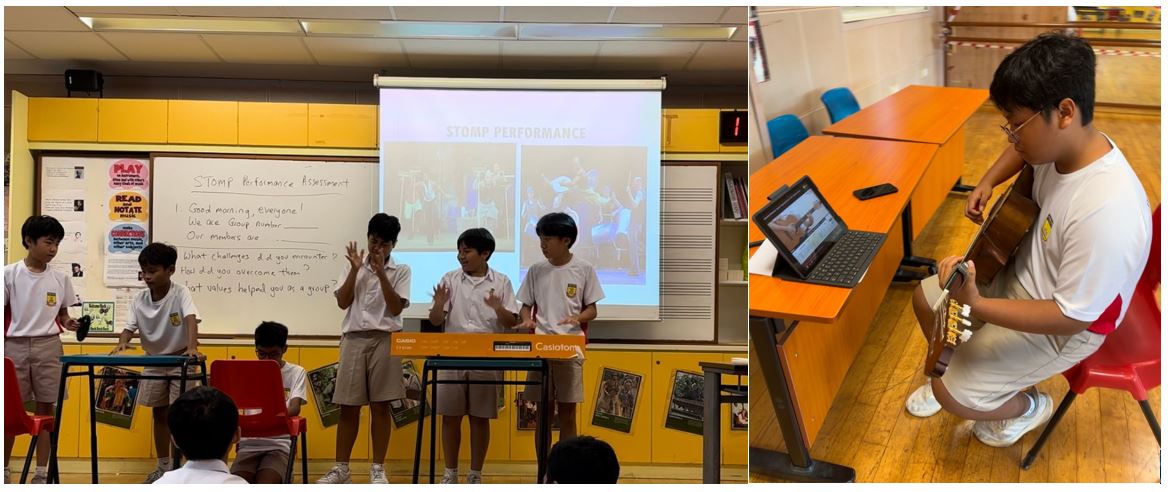Music
Music
Introduction
In the music programme at BDS, students listen to, compose and perform music from a broad range of styles, traditions and contexts. They create, shape and share sounds in time and space and critically analyze music they listen to, make and perform. Music practice is aurally based and focuses on acquiring and using knowledge, to understand music and musicians from their own experience and from other times and places.
Student Outcomes
The General Music Programme aims to:
- Develop awareness and appreciation of music in local and global cultures
- Develop ability for creative expression and communication through music-making
- Provide the basis to develop an informed and life-long involvement in music
Curriculum
BDS Music Programme is conducted throughout the year for all lower secondary students. Students acquire basic instrument skills in electronic music keyboards and guitar in order to develop their interests and passion. These skills serve as a platform for group music-making, songwriting and performance opportunities. Resources are provided for students to continue their learning outside of the classroom.
Students are exposed to specialised music software to add relevance to their learning in today’s increasingly digital world. These include music production software to facilitate creative and performance endeavours within the school and community.
Please refer to the link below for more details:
Lower Secondary Music
Upper Secondary Music (at designated music centres)
Upper secondary students with formal training and background are encouraged to pursue ‘O’ Level Music at designated music centres. Please refer to the syllabus above for details of learning goals and content.
Pedagogy
The BDS Music Programme has applied the informal and non-formal pedagogical approach (Green, 2008) based on the practices of popular musicians. This approach emphasizes student-directed, peer-directed and group learning, in order to develop greater ownership and to express creative musical ideas in collaborative music making. The non-formal approach allows for differentiated learning in a group setting as students perform to their abilities, based on different instrument competencies.
Assessment
Music achievement standards indicate the quality of learning that students should typically demonstrate. Assessment in the BDS Music Programme is aligned closely with the MOE Music syllabus objectives, content and pedagogy. Through portfolios, graded task assignments and reflections, students are assessed on their knowledge, skills and competencies as well as their achievement of learning outcomes.


